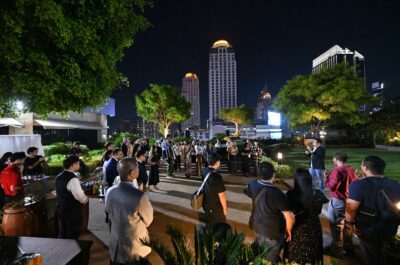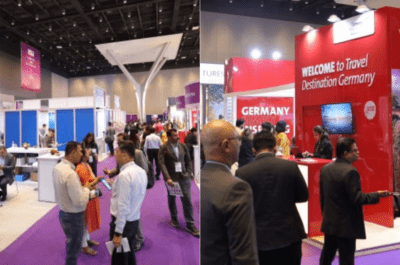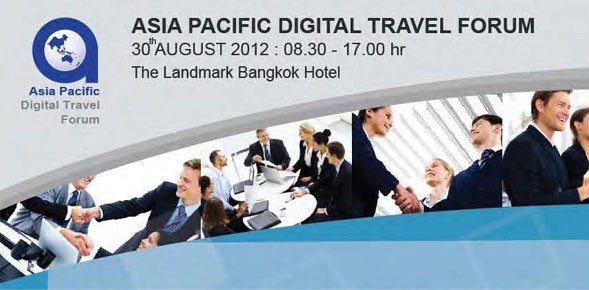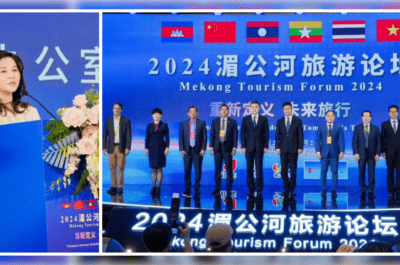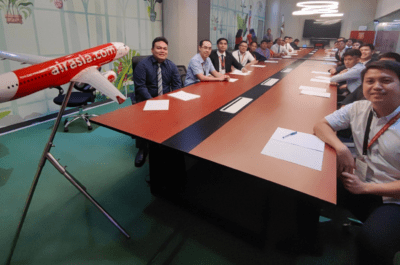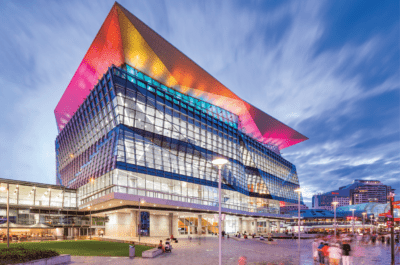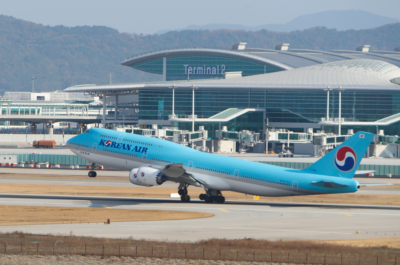Asia’s craze for digital technology seems not to be always well maximized in the travel industry. This is the outcome from a one-day forum hosted at the Landmark Hotel in Bangkok where various actors of the travel and technology industry spoke out.
BANGKOK – The Tourism Technology Association (TTA) hosted on Thursday the 1st edition of the Asia Pacific Digital Travel Forum with experts from around the world coming to discuss the use of technology in the travel industry. The forum was organized in cooperation with the Ministry of Tourism and Sports, the ASEAN Tourism Association (ASEANTA), the Tourism Authority of Thailand, the International Institute for Trade and Development and the Thai tourism industry.
“The Asia Pacific Digital Travel Forum is being held in Thailand for the first time with a focus on promoting the tourism industry to enhance digital capabilities. It is done with an eye on the AEC (ASEAN Economic Community) from 2015. AEC will become the epicentre for tourism of the entire Asia Pacific Region, with some of the world’s most popular tourism destinations as its core members,” said Apichai Sakulsureeyadej, President of the Tourism Technology Association.
“The forum is an unprecedented platform to drive the digitalisation of the tourism industry because it brings together tomorrow’s leaders and will set a course for future tourism prosperity and share experience and vision in the way of using technology in the travel industry,” he added.
They are still progress to be done on the integration of the newest digital technologies as well as offering up-to-date portals for both the trade and consumers. “We must adapt constantly to new technologies. This can be a real challenge to raise awareness among all travel industry players about the need to adapt our tools to a constant changing demand from consumers,” explained Dr Pyrasan Punyagupta, Representative of the Software Industry Promotion Agency in Thailand.
The problem is particularly acute when looking at travel portals from governments or large state companies. Just looking at the e-portal of Thai Airways for example shows how far is still Thailand’s national carrier from adapting its e-tools to new consumers’ demand in technology. In September 2012, TG booking engine is still unable to provide a flexible fare structure according to the stand of reservations on flights (see the screen capture of TG booking page on August 31 for flights to Manila for mid-November).

Although some tourism portals such as the ones from Tourism Malaysia or the Tourism Authority of Thailand are permanently upgraded and their content spruced up, they remain exceptions. At some official NTOs or Ministries of Tourism’s sites, information updates are as old as two or three years…. “We work now at ASEANTA to integrate a digital reservation system. We do work with NTOs to be able to launch this application before the end of the year,” recognized Wiryanti Sukamdani, President of ASEANTA.
“I think that the industry must understand that all technologies are here today to simplify the life of travellers. I just would say to travel players looking at enhancing their technologies: make it easy for all. Technology gives this wonderful opportunity these days for example to facilitate visa applications, to send visas by e-mail or on a mobile device. It will really help to further stimulate tourism,” analysed Mason Florence, Director of the Mekong Tourism Coordination Office.
Technologies are also turning people increasingly intelligent to find the right fare, the right place, to collect information. But it also make them more demanding. “While technology simplifies and stimulates travel demand, we now face a real problem of human resources to accommodate this demand,” told Mohammed Ilyas, President of the Malaysian Hotels Association.
“Nowadays, people search the internet to find more information about the places they want to go.They can easily find out about the rates, pictures of the hotel rooms or the atmosphere of the venue via online social networks or social media. They can even learn from the comments posted on the forum by travellers or visitors. This helps save time and effort. Therefore, if we take online marketing more seriously we can instantly access millions of potential customers and tourists. Importantly, we must focus on IT technology to push the travel industry forward and continue to grow,” said Apichai Sakulsureeyadej.

Source: Go-Gulf
Another potential danger of IT use is the possible dehumanisation of communication. “ Every 60 seconds, 168 million of emails are sent, 695,000 status are updated on facebook, 370,000 calls are made on Skype and the list is long. But to me content still matters over numbers. I believe that if technology is a tool to help people in their work or live, it will never replace the human contact, the smile, the capacity to learn from each other on traditions, cultures. I might be old fashioned but I think, this is still the essence of our travel experience as individuals,” advocated Martin Craigs, PATA CEO.
Luc Citrinot a French national is a freelance journalist and consultant in tourism and air transport with over 20 years experience. Based in Paris and Bangkok, he works for various travel and air transport trade publications in Europe and Asia.



